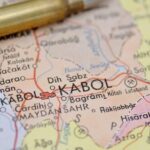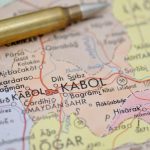Lest We Forget, That Wars Are the Product of Lies

“In democracies, or the pseudo-democracies that we are evolving into, wars are a result of lies,” Julian Assange told anti-war protesters in London’s Trafalgar Square in October 2011.
“The Vietnam War and the push for US involvement was the result of the Gulf of Tonkin incident… a lie,” the Australian journalist added.
For his part in exposing the multiple lies of the American Empire, the Wikileaks founder is being detained in conditions akin to torture in London’s Belmarsh Prison, under questionable legalities, as Washington seeks to extradite him for prosecution over charges carrying 175 years gaol time.
Along with the false flag that was Tonkin, Assange listed other conflicts facilitated by the lies of government: Bush Jnr’s weapons of mass destruction in Iraq, Bush Snr’s citing an already abating famine to intervene in Somalia, and Hitler’s Gleiwitz incident, which led to the invasion of Poland.
As Australia collectively remembers those who died in foreign battles today, 25 April, it might be an opportune time to reflect on how these lies that propped up wars of the past went unquestioned by the majority of the time as they appeared in the press as facts.
And the sombre pause of Anzac Day is also an ideal moment to question the truths we’re being told about our nation’s worsening ties with Beijing, and whether we’re looking for fresh local and foreign bodies that we can mourn on this day in the future, as a result of a war with China.
Breaking the silence
In Trafalgar Square, Assange also noted the complicity of the media in disseminating the lies that governments use to enter into conflicts with foreign nations.
“Let us ask ourselves of the complicit media, which is the majority of the mainstream press, what is the average death count attributed to each journalist?” he remarked.
However, in this country, if a journalist does speak out against the edifice of war and sanctity of the Anzacs, it can cost them dearly.
Former SBS sports reporter Scott McIntyre learnt this well, when he dared to question the truths underpinning our national day of remembrance.
In a series of tweets on 25 April 2015, McIntyre described Anzac Day as “the cultification of an imperialist invasion of a foreign nation that Australia had no quarrel with” and “remembering the summary execution, widespread rape and theft committed by these ‘brave’ Anzacs”.
Then prime minister Malcolm Turnbull condemned his tweets as “despicable”, while SBS management sacked McIntyre.
Although, one would only have to pick up a World War One history book or peruse the recently released Brereton report to come to the same sort of conclusions as the sports journalist did.
Two years later, media presenter Yassmin Abdel-Magied suffered the same fate, when she suggested in a tweet that people remember the refugees locked up on Manus and Nauru on Anzac Day. The backlash the Sudanese-Australian woman copped saw her leave the country for good.
War is profit
Outgoing US president Dwight Eisenhower warned the US public in 1961 about the increasing power of the military-industrial complex, which is comprised of a nation’s defence department and its forces on one side and the defence industry – those who built the weapons – on the other.
This relationship sees governments purchasing weapons from private defence contractors, who in turn contribute funding to the campaigns of their associates in parliament.
And, of course, the more warring a government is into creates the need for further armaments, which in turn leads to increased profit.
Although, this profiteering from war long preceded the time of Eisenhower. And so too did the system that sees the great majority of foot soldiers sent into battle and losing their lives being the children of those from lower socioeconomic circumstances.
As Australians for War Powers Reform vice president Dr Alison Broinowski explained this week in our nation’s case wars have always been fought at the behest of foreign powers. It used to be the British who led us into battle, but, these days, the government blindly follows the US into war.
The futility of war
At its heart, Anzac Day commemorates the 1915 battle in Gallipoli, situated on the coast of modern day Turkey. The futile expedition saw a newly independent Australia send thousands of troops to be used as rifle fodder on behalf of the British forces.
And to reinforce just how deep the lies surrounding war go in this country, the Australian War Memorial continues to refuse to acknowledge the only battles that occurred here, which saw First Nations peoples engaged in the prolonged Frontier Wars against invading British forces.
This refusal to recognise the Frontier Wars is part of an ongoing and failing effort to erase this continent’s Black history, along with the understanding of the attempted genocide underpinning colonisation.
“Australia has been involved again and again in expeditionary wars at our allies’ request ever since Vietnam, with a complete lack of success,” said Dr Broinowski. These conflicts include the 1990 Gulf War, the Iraq War earlier this century, and our nation’s longest war, which was in Afghanistan.
David McBride served two tours in Afghanistan as an official military lawyer. And according to him, Australian forces were engaged in military actions that were all for show. SAS troops had no real aim or purpose other than to keep up appearances, which then led to the committing war crimes.
The lawyer went to his superiors with his concerns about how operations were being run in the Central Asian country. But, as the matter was dismissed internally, he then went to the press with the revelations that became the controversial ABC report The Afghan Files.
The coming war with China
On Thursday, the Morrison government announced it was using new powers to abolish a 2018-19 trade agreement that the Victorian state government had made with Beijing in relation to its Belt and Road Initiative.
Needless to say, the Chinese Communist Party weren’t too happy about it.
The move by Canberra comes on the back of rising tensions between this country and its biggest trading partner. Beijing has unleashed trade sanctions and detained an Australian journalist. While Morrison has raised concerns over a supposed mass cyber attack by a “state-based actor”.
Washington has refused to say whether it’s behind the Australian pull out, but it says it stands by Canberra’s decision.
Veteran Australian journalist John Pilger has long been warning that the US has slowly been encircling China, with a huge build-up of military bases. And in relation to the US operation, Pilger said in 2017 that “Australia is sleeping walking into a confrontation with China”.
McBride told Sydney Criminal Lawyers last week that he believes the long-term legacy of Assange can be summed up in a line from his 2011 Trafalgar Square speech, when he said, “If wars can be started by lies… peace can be started by truth.”
So, this Anzac Day, let’s hope the truths about what’s really going on between Beijing, Canberra and Washington are exposed before it’s too late.







